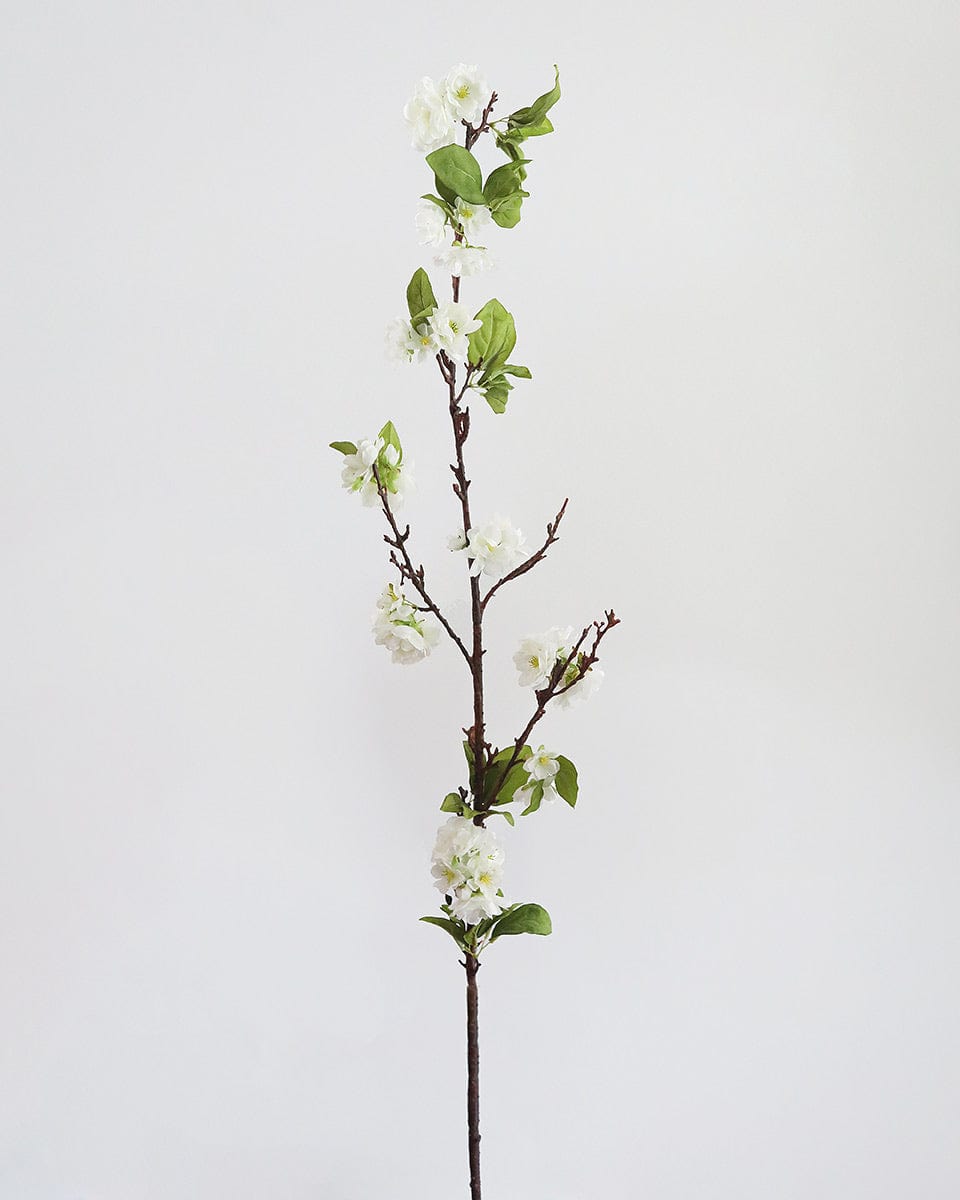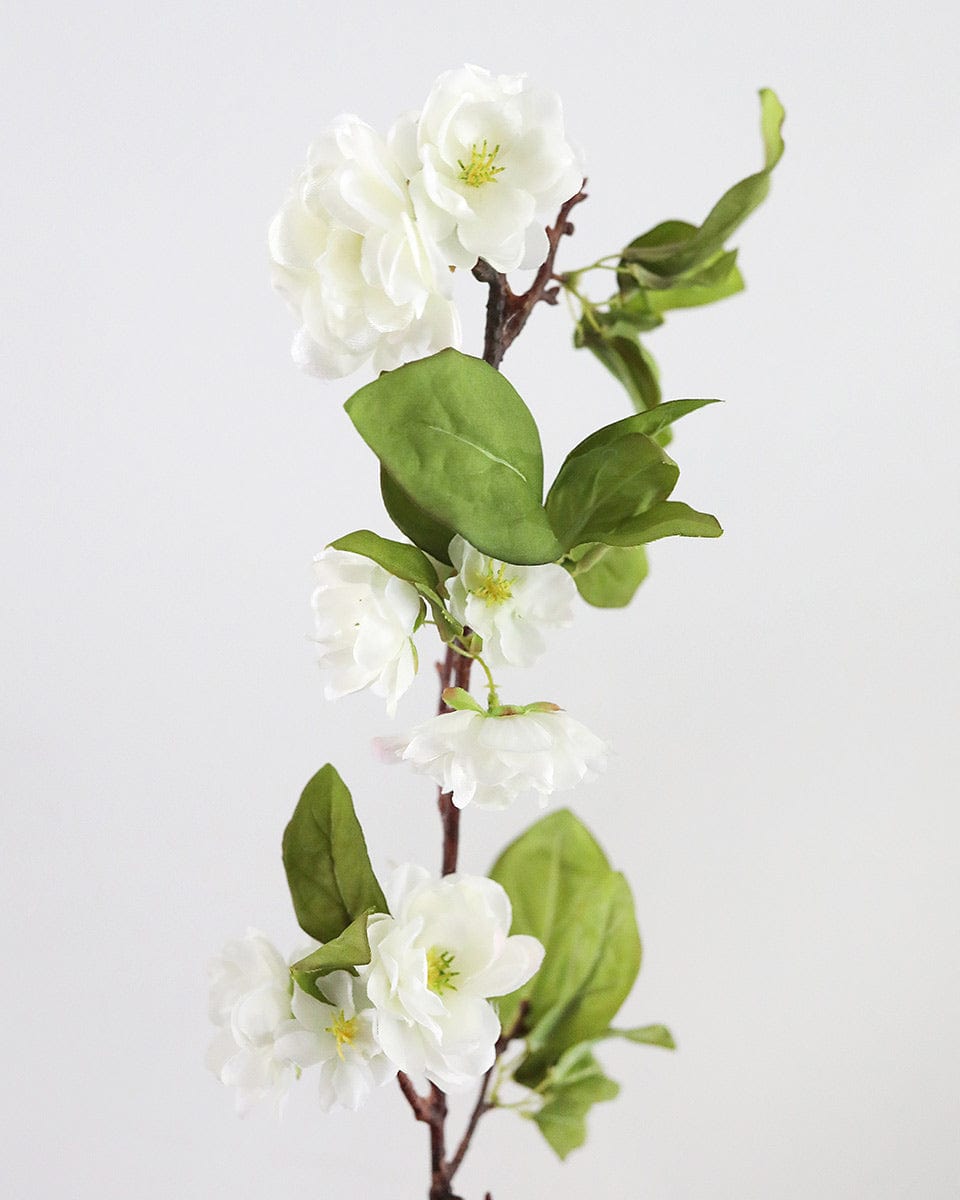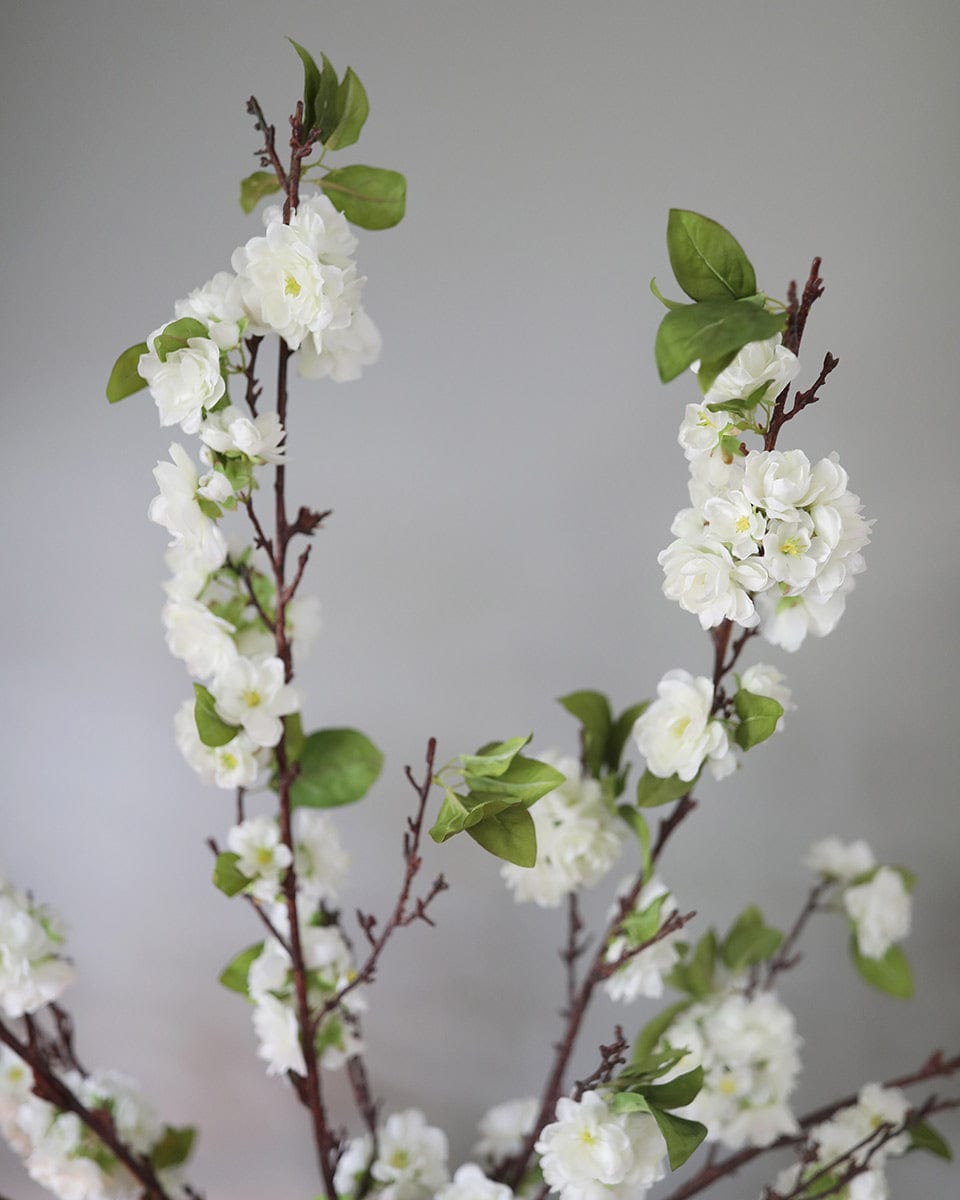



As Seen on
































































































































































More About This Stem
Embrace the timeless allure of cherry blossoms without worrying about seasonal changes. Our faux white cherry blossom retains its pristine appearance all year long, offering the joy of everlasting beauty and the Spring season, without the need for any maintenance. Create a serene and inviting ambiance by incorporating these blossoms into your interior decor, adding a touch of nature's splendor to any space.
This tall fake white cherry blossom is perfect as a stand alone bloom, but also becomes a captivating focal point in floral arrangements, bouquets, or centerpieces. Whether adorning your dining table or brightening up a corner, this delightful artificial bloom exudes sophistication.
60 Day Money Back Guarantee
World's Most Realistic Artificial Flowers
Shipped fast & securely from Chicago
Indistinguishable from Real Cherry Blossoms
Design Endless Bouquets
Save Thousands on Fresh Flowers
Enjoy flawless blooms for years while saving thousands on fresh flower replacements
Beautiful Blooms Without the Sneezing
Perfect for sensitive spaces and allergy sufferers - all the beauty of fresh flowers with zero pollen or irritants.
The Pursuit of Excellence:
Making a Prestige Botanical
Trusted by 50,000+ Interior Designers, Wedding Planners & Flower Lovers


Beautiful Quality
Very pleased with my first order of real touch flowers. The camelias, white roses, and anemones are beautiful quality.. Already ordered again!

Cesia J.

Really Great Product
Really great product, looks like the photos. Delivered in a secure, carefully packed box in the time frame posted.

Kevin R.

Quality is Amazing
The flowers are the most beautiful I've used in arrangements. The red magnolias pop with vibrant color... the quality is amazing and worth it.

Jean M.

Very Realistic
Great quality. Very realistic. Added the pop of color to my vase

Letica A.
Read More Reviews
Why Choose Prestige Botanicals?
Prestige Botanicals
Other artificial flowers
Indistinguishable from Real Flowers
Handmade Construction, and hand painted finishes over 90 days
Rich, multi-tonal hues with natural color variations
Built to last decades
Flexible, shapeable stems and leaves for total styling control
High quality construction materials
60 Day Money Back Guarantee
Patanted unique 'Real Touch' Technology
Exclusive Product - not available anywhere else
Mass Produced
Pristine Packaging for Perfect Arrivals
- Our arrangements arrive as works of art, beautifully presented and perfectly preserved.
- Signature long boxes: Specially designed to protect each delicate stem.
- Premium tissue wrapping: Keeps every petal pristine and picture-perfect.
- Reliable delivery times: Tracked and scheduled to ensure your botanicals arrive exactly when you expect, in flawless condition.













